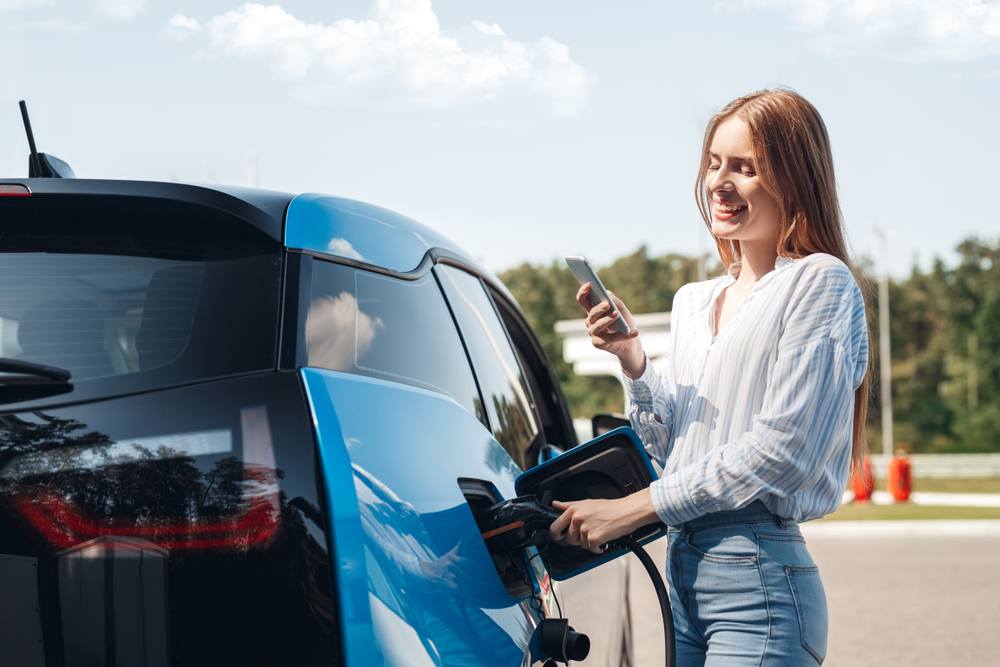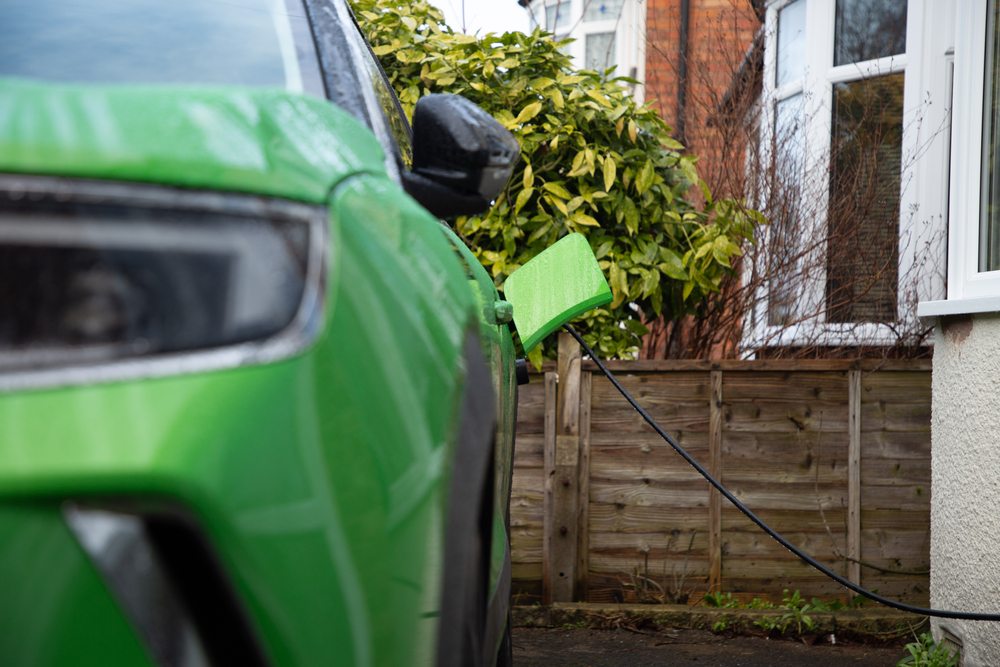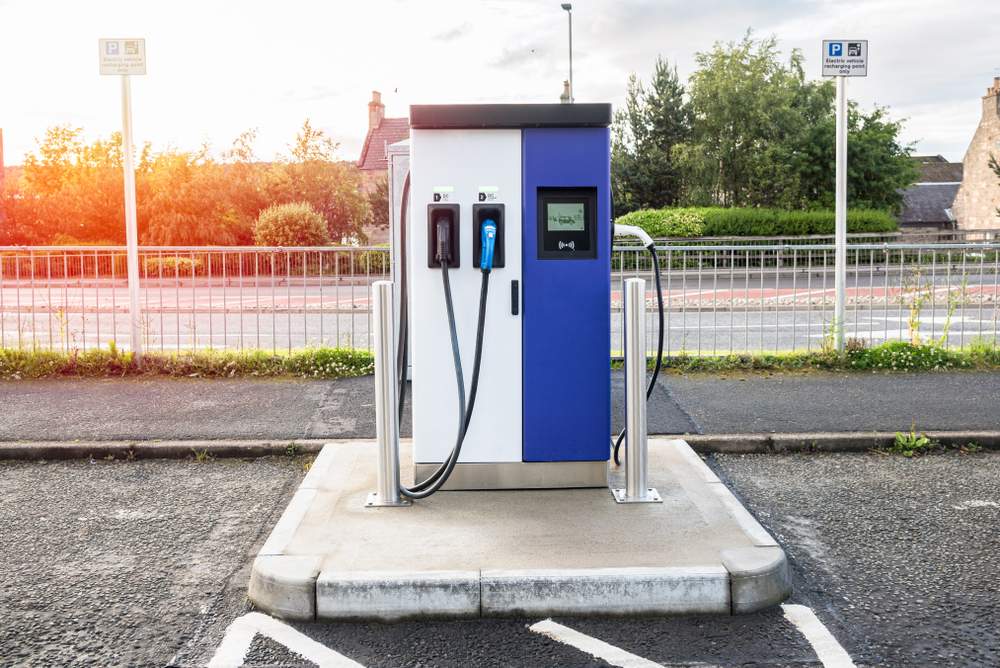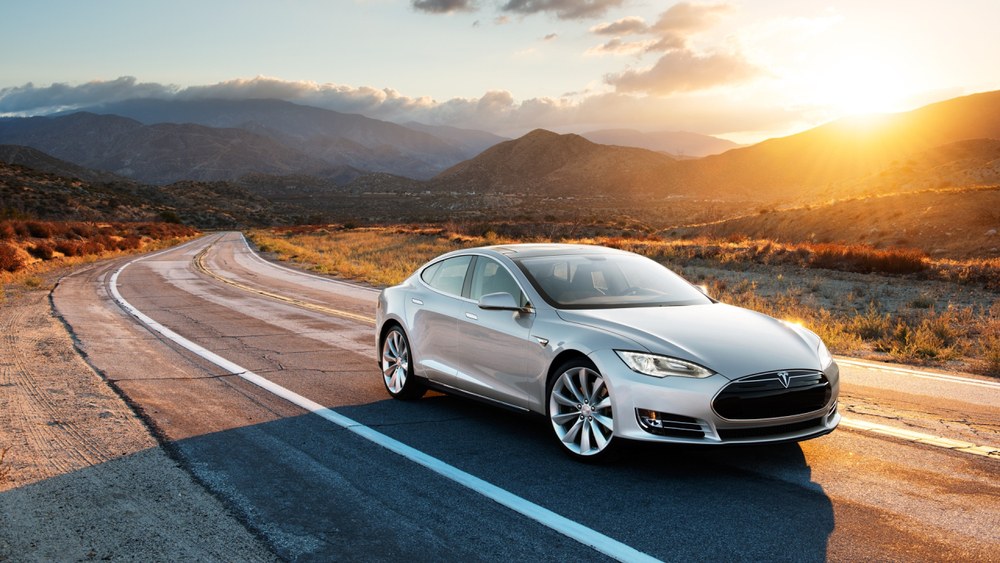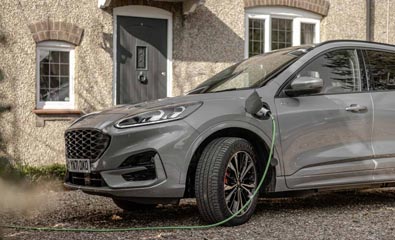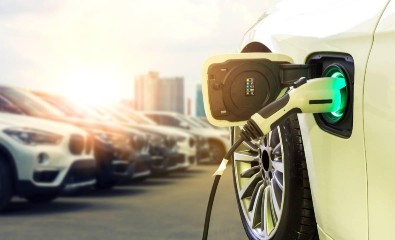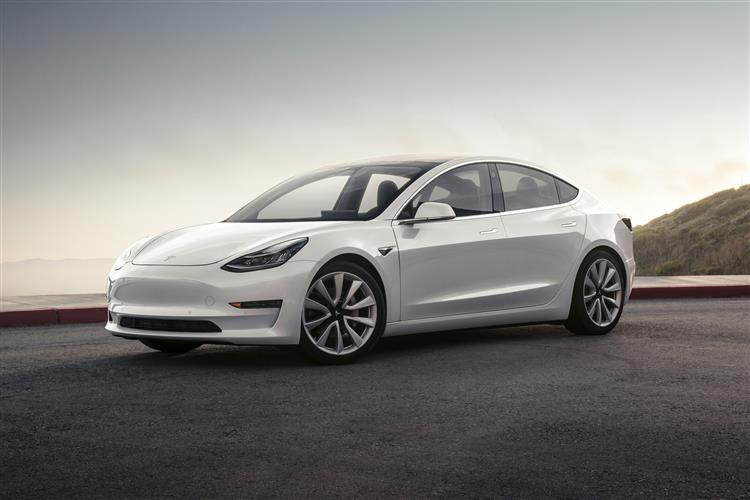The cost of charging and running an electric car is nearly always less than an equivalent petrol or diesel car. There’s no ‘one size fits all’ cost for charging an electric car. That’s because of the difference in vehicle specifications, and differing costs between a home charge point and public charge points.
However, some basic parameters allow you to calculate your running costs and compare them to what you might be used to as a petrol or diesel driver.
If you can charge at home, or even better, using a free charging station, running an electric car will obviously be far cheaper. However, even with paid superfast 350kW charging, which can get closer to traditional fuel costs, you’d still be seeing significant savings.
Contents
- How Much Do You Save With An Electric Car?
- How To Calculate Your Electric Car’s Cheapest Charging Cost
- The Cost Of Charging An Electric Car At Home
- Charging Your Car Away From Home
- How To Find Charging Stations That Are Cost Efficient
- Charging Your Car Away From Home
- Electric Car Running Costs
How Much Do You Save With An Electric Car?
On average, an EV could save you 10p for each mile travelled. Applied to the UK average of 7,400 annual miles, that’s almost £740 recouped every year. For drivers doing more miles, especially company car drivers, the savings could be significantly higher.
Our calculation is based on the average cost of electricity in the UK, which is 34p per kWh according to the Department for Business Energy & Industrial Strategy (BEIS).
This is compared with the average cost of running a petrol or diesel car – currently, 19p per mile, based on the £1.73-per-litre average of petrol and diesel. The per-mile savings are then multiplied into weekly, monthly and yearly savings, depending on your yearly mileage.
The tool also allows you to increase the average cost of fuel, to see how the ever-rising price of petrol and diesel could result in even more financial gain.
How To Calculate Your Electric Car’s Cheapest Charging Cost
Although home electricity costs do vary slightly across the country, the average price is currently 34p per kWh. To work out what that means in car-charging cost, you can simply multiply the pence per kWh rate by the battery size of your car and then divide it by 100. The answer is the cost in pounds for a single full home charge.
Using an electric Vauxhall Corsa-e with a 50 kWh battery and a petrol Vauxhall Corsa, we’ve put together an indicative electric car charging costs guide for you:
Based on a fuel price of 173p per litre and an electricity price of 34p/kWh at home and 63p/kWh in public
-
Electric Car Charging Cost: 8p per mile
-
Petrol Car Fuel Costs: 17p per mile
-
Vauxhall Corsa-e Home Charge - £17.00 for 222 miles of range (8p per mile)
-
Vauxhall Corsa-e Roadside Charge - £31.50 for 222 miles of range (14p per mile)
-
Vauxhall Corsa - Fuel Price: £77.85 for 446 miles (17p per mile)
So to work out the cost of fully charging a 50kWh battery in a Vauxhall Corsa-e, it is 34p times 50kWh divided by 100. Or £17.00.
Remember that’s based on an average electricity rate. Use an off-peak discounted rate and the chances are you could charge a Vauxhall Corsa-e for around £4. It is worth noting that unless you’re emptying your battery in a single day, most overnight charging at home will simply be a top-up and subsequently cost you even less.
The Cost Of Charging An Electric Car At Home
Electric car charging at home, using your own supply, means you can rely on the software in most cars to draw power only in the early hours of the morning to benefit from off-peak electricity deals.
Tariffs still vary between suppliers but in a highly competitive market, night-time charging costs can be significantly lower. As an example, Octopus Energy currently offers 4 hours of off-peak electricity every day, between 00:30 and 04:30, for 7.5p per kWh.
Many electricity suppliers are trying to win over EV owners and overnight charging at a discounted rate will make recharging significantly more cost-effective than stopping for a tank of fuel.
And getting a good deal from your electricity supplier can extend beyond just a cheap rate. Right now suppliers such as Ovo are throwing in free BP Pulse subscriptions, meaning you’ll get discounted electricity on the road if you use the BP network. Choose the right deal and some makes of car even qualify you for up to 5000 free miles of charging.
Charging Your Car Away From Home
If you can’t get to a home charger or free EV charging point, then you’re going to have to head to what is the modern equivalent of an old-school service station, in the form of a booming network of electric charge-point suppliers who will allow you to plug in and charge up at one of their outlets.
While prices per supplier will vary depending on location and speed, as an indication of cost, a Vauxhall Corsa-e with a 50kWh battery pack will cost £19.80 to charge from 20-80% on an Instavolt 100kW DC charger at 66p-per-kWh, but could be as high as £30.00 for a 60% boost using the Osprey rapid charging network, on their £1-per-kWh PAYG rate.
If you’re plugging into a paying public network, the simple fact is your charging costs will vary depending on the speed you draw electricity.
The slower the electric car charging point – for example, a lamppost charger – the cheaper the rate. This sort of solution is perfect for plugging in cost effectively when you know you’re going to be parked up for a while.
Rapid EV Charging
If, however, you need a rapid top-up, then the network of rapid or superchargers that you will find at motorway service stations will mean you can get your batteries topped up faster, but you will pay more for the privilege – sometimes as much as 2 or 3 times the cost of home charging.
How To Find Charging Stations That Are Cost Efficient
When you’re out on the road, it pays to use one of the many helpful EV charging apps (such as Zap-Map) for your smartphone, to seek out the most cost-effective charging points.
On the paying network – often with faster chargers – costs are unsurprisingly higher, ranging from 48p per kWh up to nearly £1 per kWh from some rapid charging points, working on a simple ‘pay-as-you-charge’ basis.
Even then, however, the cost of fully charging a 90kWh car like a Jaguar I-Pace on a 48p-per-kWh charger is still less than £45 – significantly cheaper than putting 70 litres of diesel into an equivalent saloon at current fuel prices…
Electric Car Running Costs
Many people are concerned that the slightly higher cost of new electric models (in comparison to petrol or diesel cars) offsets any potential running-cost savings, but the fact is over the course of ownership, electric cars should cost you less than an ‘old-school’ internal combustion engine, or ICE, car.
And when you lease, you spread that slightly higher entry price across the life of the vehicle, meaning that leasing can become an extremely effective way of offsetting the current premium you might pay for an EV.
Benefit In Kind (BIK) Tax
Benefit-in-kind (BIK) tax, or company-car tax, is paid annually by drivers of company cars, but the amount required varies greatly depending on the car in question. All-electric cars, for example, are subject to a BIK rate of only 2% until April 2025. See below for info on how to work out your rates.
First, multiply your company car’s total value, or P11D value (including VAT, extras and delivery) by its BIK rate as a decimal. So, for 2% rates, multiply by 0.02. This is then multiplied by your income-tax bracket, also as a decimal, to show what you’ll pay annually. If you’re a 20% taxpayer, multiply by 0.2, or if you’re a 40% taxpayer, multiply by 0.4 for example.
Divide the final figure by 12 (months in a year) and this will show your personal company car tax on a monthly basis.
To use an example vehicle, let's take the highly-popular Tesla Model Y with a P11D value of £55,990 for a 40% taxpayer:
£55,990 x 0.02 = £1,119.80
£1,119.80 x 0.4 = £447.92
£447.92 / 12 = £37.33 company car tax per month
Upgrade To Electric Today
So there's really never been a better time to upgrade from an ICE car to an electric one. Take a look at our latest and greatest electric car lease deals today, including the Tesla Model 3 and Model Y, or even the Renault Zoe.

